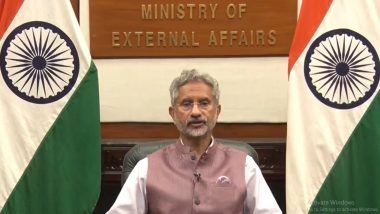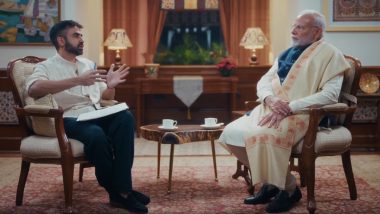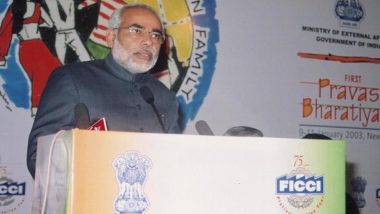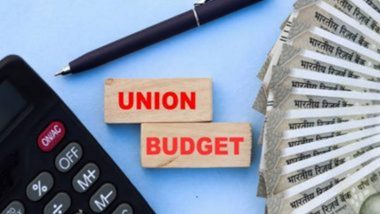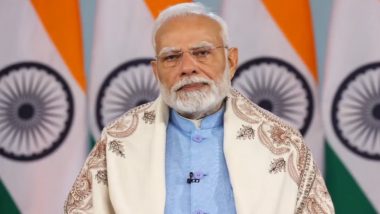Dhaka, Mar 4: Describing India's ties with Bangladesh as a truly "360 degree partnership," External Affairs Minister S Jaishankar on Thursday said Prime Minister Narendra Modi's planned visit to Dhaka later this month will surely be a "very memorable" one.
Jaishankar arrived here on a day-long visit to prepare the ground for Prime Minister Modi's visit to Bangladesh later this month to participate in the celebrations of 50th anniversary of Bangladesh's Independence and 50 years of Bangladesh-India diplomatic relations.
After holding comprehensive discussions with his Bangladeshi counterpart A K Abdul Momen, Jaishankar said Bangladesh was central to India's 'Neighbourhood First' policy and increasingly relevant to the country's 'Act East Policy'. S Jaishankar Calls Out China, Pakistan on Terrorisms, Unveils 8-Point Plan.
"We are working to prepare for the planned visit of our Prime Minister. It will surely be a very memorable visit: if I recall right it would be his first visit outside India since the coronavirus pandemic and his second as Prime Minister to Bangladesh," he told reporters here at a press conference along with Momen.
Prime Minister Modi is likely to pay a two-day visit from March 26 to Bangladesh to participate in a series of events.
Jaishankar acknowledged that it was a "very special year" for the people of Bangladesh when both countries mark the Mujib Barsho, 50 years of Bangladesh's Liberation and 50 years of India-Bangladesh bilateral relationship.
"May all your dreams come true and I can assure you that India will always be there by your side, as a reliable friend," he said in his opening remarks at a joint press interaction.
"Our relationship is so broad & our comfort level so high that there is no domain today that is left untouched. It is a truly a 360 degree partnership," he tweeted. Jaishankar also underscored the significance of connectivity between the people of two countries.
"Our relations actually transcend even our strategic partnership, and I believe that our bonding is central to the realisation of a dream of a peaceful, prosperous and progressive South Asia," he said.
It is in pursuit of this vision that both sides have made remarkable progress in the relationship, especially since Prime Minister Modi's assumption of office in May 2014, he said.
The significance of India's ties with Bangladesh lies in its centrality, for India's ‘Neighbourhood First' policy and Dhaka's growing relevance for India's ‘Act East' Policy, he said.
"We see Bangladesh as a key neighbour and a valued partner not only in South Asia but also in the broader Indo-Pacific region. Every outcome and achievement in our relationship resonates through this region. It is no secret that we cite it to others as an example for emulation," he said.
During his meeting with Momen, Jaishankar held wide-ranging discussions on ways to take forward the bilateral relations.
"We are working so hard to expand our relationship to whole dimensions, ranging from security, trade, transport and connectivity, culture, people to people ties ensuring development of our shared resources," Jaishankar told reporters.
"Our comfort levels are now so high that we have shown that there is no issue that we cannot discuss and resolve through amicable dialogue," he said.
Momen said the two countries have committed to continue to work together to take "our bilateral relations to newer heights under the leadership of Prime Minister Narendra Modi and Prime Minister Sheikh Hasina."
Jaishankar said that his visit is also a statement of solidarity in "our shared fight against COVID.
In January, India sent over 20 lakh doses of COVID-19 vaccine as a gift to Bangladesh.
"The pandemic has actually provided an opportunity to reaffirm our friendship. Bangladesh is the largest recipient of Made in India vaccines. Also among the friendship our largest gift of vaccines of 2 million, which is really appropriate that it is to Bangladesh," he said.
Speaking on the sharing of Teesta waters, Jaishankar said, "We did discuss it and you know we would have a meeting of our water resources secretaries very soon.
"I am sure they will discuss it further. You know the Government of India's position, that has not changed."
The Teesta river originates in Sikkim, flows through the northern parts of West Bengal, before entering Bangladesh and joining the Brahmaputra river.
Replying to a question on the killings of Bangladeshis allegedly by the Border Security Force along the border, Jaishankar said, “We have talked about it. Many of the deaths take place inside India. Every death is regrettable.”
The deaths occurred due to the crimes along the border, he said, expressing optimism that it could be stopped by the joint efforts of both the countries.
"But the problem is because of crime. So our shared objective should be there will be 'no crime, no death' on the border. I am sure if we can get it right -- no crime, no death -- we can together address the problem effectively," he added.













 Quickly
Quickly









